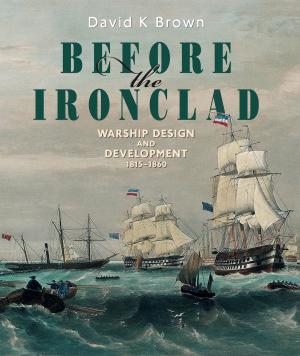| Author: | Barry Gough | ISBN: | 9781473875654 |
| Publisher: | Pen and Sword | Publication: | August 30, 2016 |
| Imprint: | Seaforth Publishing | Language: | English |
| Author: | Barry Gough |
| ISBN: | 9781473875654 |
| Publisher: | Pen and Sword |
| Publication: | August 30, 2016 |
| Imprint: | Seaforth Publishing |
| Language: | English |
Emma Hamilton, much maligned by her contemporaries and later by historians and commentators, rose from the most humble beginnings to play a startling role in Britain’s naval victory over France and Spain in 1805. In this new book Barry Gough, employing the letters between the protagonists, and the unpublished examination of her career by famed American historian of the Royal Navy Arthur Marder, strongly defends Emma. He shows how this most talented of women and the beauty of her age fell victim to innuendo, slander and cruel caricature. She was to die in poverty in Calais in 1815, just months before Napoleon’s final defeat.
England’s greatest sailor fell deeply in love with Emma in the years before Trafalgar. This, together with his quest for glory and victory entangled him in an inescapable web of circumstances and calumny. The author explores the evolving scandal, the high political stakes that were involved, and the love affair itself which so influenced the fortunes of England’s glory and the fate of her Wooden Walls. No novelist could have created such a tortuous scenario, charged as it was with high emotions, slurs, insults and slander.
Richly illustrated throughout, the book shows Emma, probably the most painted woman of her age, in all her glories; it also shows how heartlessly caricaturists treated her. ‘That Hamilton woman’ will long remain a controversial figure but here the author places her as one of the forces that gave the Royal Navy its will to fight and conquer. He depicts sympathetically a woman entrapped in circumstances of her own making, her saga reminding us of how frail is human fortune.
Emma Hamilton, much maligned by her contemporaries and later by historians and commentators, rose from the most humble beginnings to play a startling role in Britain’s naval victory over France and Spain in 1805. In this new book Barry Gough, employing the letters between the protagonists, and the unpublished examination of her career by famed American historian of the Royal Navy Arthur Marder, strongly defends Emma. He shows how this most talented of women and the beauty of her age fell victim to innuendo, slander and cruel caricature. She was to die in poverty in Calais in 1815, just months before Napoleon’s final defeat.
England’s greatest sailor fell deeply in love with Emma in the years before Trafalgar. This, together with his quest for glory and victory entangled him in an inescapable web of circumstances and calumny. The author explores the evolving scandal, the high political stakes that were involved, and the love affair itself which so influenced the fortunes of England’s glory and the fate of her Wooden Walls. No novelist could have created such a tortuous scenario, charged as it was with high emotions, slurs, insults and slander.
Richly illustrated throughout, the book shows Emma, probably the most painted woman of her age, in all her glories; it also shows how heartlessly caricaturists treated her. ‘That Hamilton woman’ will long remain a controversial figure but here the author places her as one of the forces that gave the Royal Navy its will to fight and conquer. He depicts sympathetically a woman entrapped in circumstances of her own making, her saga reminding us of how frail is human fortune.















